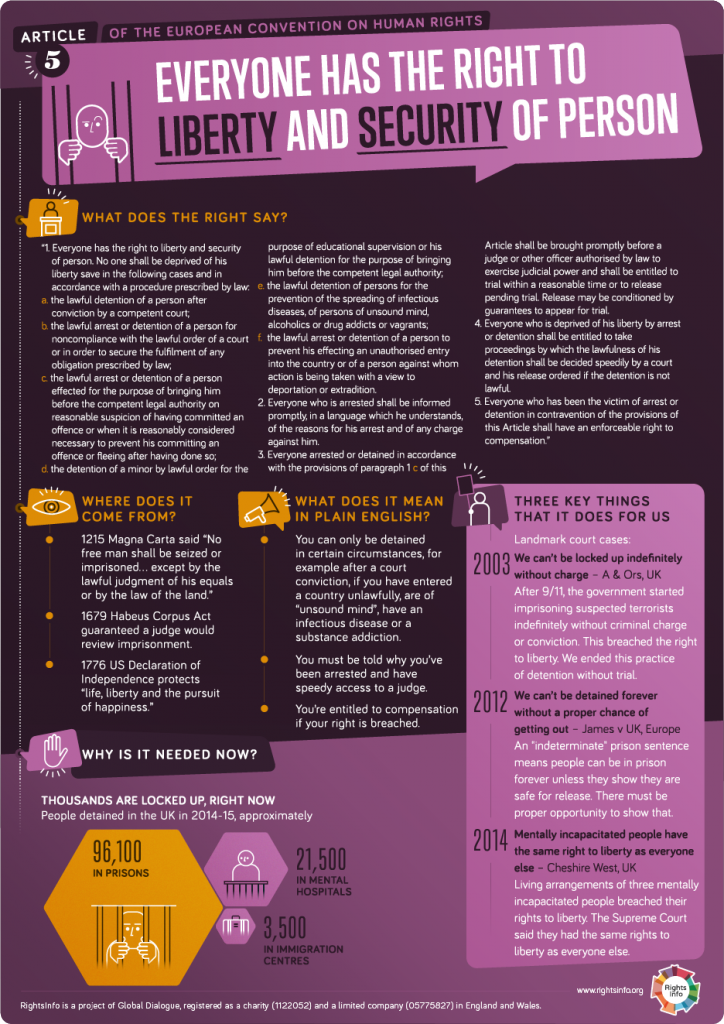The right to liberty is about freedom.
More specifically, it is about our physical freedom: the ability to live without being put in a prison. The right to liberty is one of the most fundamental rights that every human should be able to enjoy. Of course, there are times when some people should have their freedom restricted, by being kept in jail or a secure unit.
The Article sets out six times when this is appropriate, which you can see in our infographic. It’s easy to think that this right isn’t that useful for most of us, because why would we do anything that means we would be sent to jail? But what if you were accused of a crime, even one you didn’t commit? The right to liberty ensures we are all entitled to due process and and fair conditions in detention. It says that if you’re arrested or imprisoned you have the right to be told why, and that you can’t be locked up for long without having a trial.

It’s easy to think that this right isn’t that useful for most of us, because why would we do anything that means we would be sent to jail? But what if you were accused of a crime, even one you didn’t commit? Article 5 ensures we are all entitled to due process and and fair conditions in detention. It says that if you’re arrested or imprisoned you have the right to be told why, and that you can’t be locked up for long without having a trial.
It’s easy to think that this right isn’t that useful for most of us, because why would we do anything that means we would be sent to jail? But what if you were accused of a crime, even one you didn’t commit? The right to liberty ensures we are all entitled to due process and and fair conditions in detention. It says that if you’re arrested or imprisoned you have the right to be told why, and that you can’t be locked up for long without having a trial.
What’s more, is that everyone who is locked up – not just criminals, but mental health patients, young people or asylum seekers – have the right to be told why, and the right to have a court decide whether their imprisonment is fair. And if these rights are broken, Article 5 means we are entitled to compensation.
In some countries around the world the government does shut people away at will: without a trial or much evidence against them or even because they are disabled. Legal safeguards like the ones in Article 5 are crucial for ensuring our freedom is never unfairly taken away.







